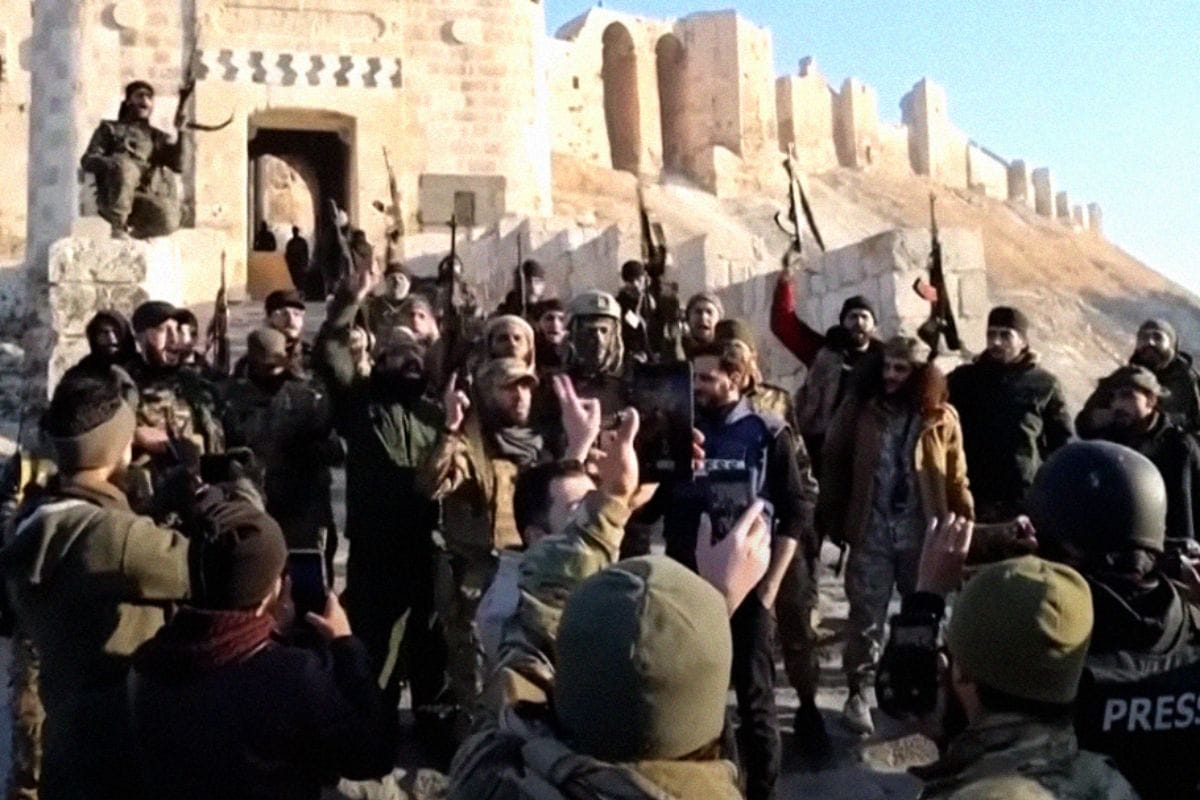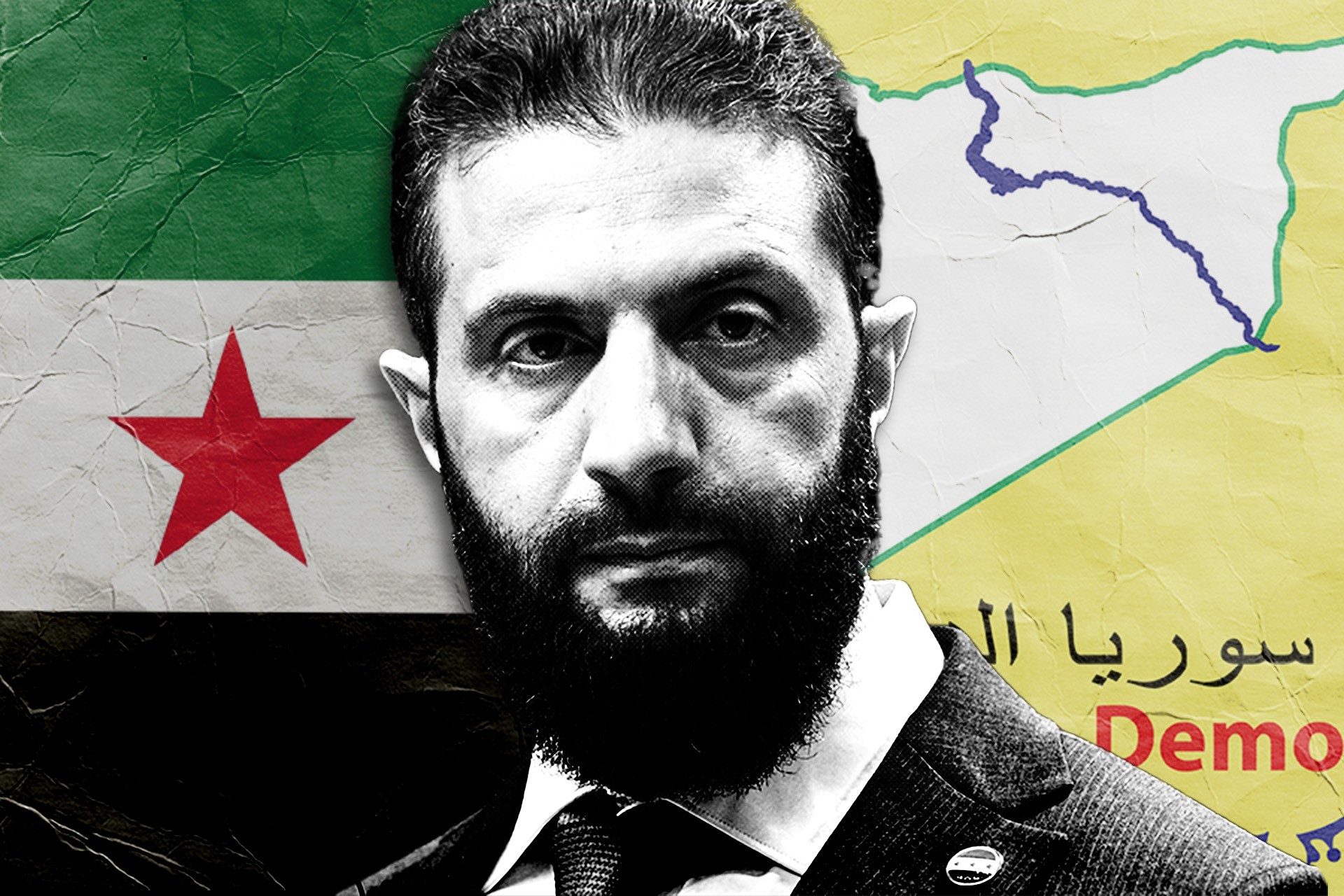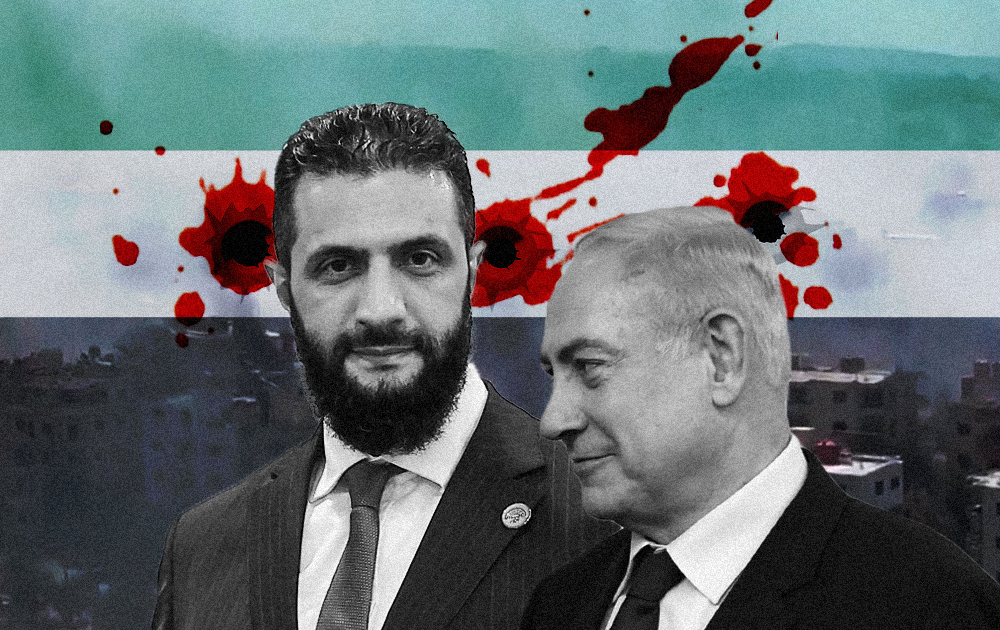The news of Bashar al-Assad’s fall in Syria was greeted with a rapturous applause by the British government. Sir Keir Starmer set the tone, welcoming the fall of the “barbaric regime” and stating that “peace and stability” would be the utmost priority of Britain in the coming period.
The very next day, without a crumb of self-awareness, Sir Keir flew to Saudi Arabia to hobnob with the Crown Prince – hardly the region’s best example of a democratic and progressive regime!
Top of the agenda was, of course, not to discuss Saudi Arabia’s role in spawning Islamist reaction in the Middle East (or funding ISIS for that matter) but growing the UK economy.
As the saying goes, “pecunia non olet” – Latin for “money does not smell“. Evidently, Saudi money is not something Sir Keir will sniff at.
Back at home, Starmer’s number two, David Lammy, highlighted in the Commons that the Labour Party had taken a brave stand in not engaging with the “monster” al-Assad; even though other, weaker-willed powers, had chosen the road of diplomacy with Syria’s “butcher”.
Both epithets would be quite appropriate to describe Israeli PM Benjamin Netanyahu, the brute who massively bombed Lebanon, and is continuing to reduce Gaza to rubble.
And yet, the Labour Party has made no such stand against Netanyahu’s barbaric regime, but has instead made excuses for Netanyahu at every twist and turn as he sought to open his destructive war up on multiple fronts.
Noticeably, the mainstream media has paid no attention to Labour’s double standards, or criticised their shallow attempts to grandstand. Instead, the BBC, Sky News, the Guardian, and others, have been solely focused on an apparent moral quandary: whether or not Labour should lift Hayat Tahrir al-Sham (HTS) from the terrorist list.
Moral conundrum?
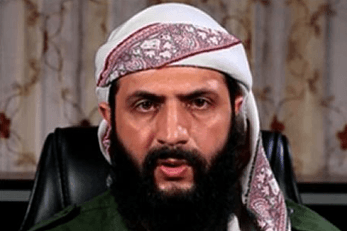
HTS, an offshoot of Al-Qaeda, was proscribed by the British government in 2017. Since HTS took power in Syria, a week-long cycle of news was dedicated to the following question: should we do diplomacy with terrorists?
Many in the government clearly believed so. On hearing news of the al-Assad regime falling like a house of cards, the Foreign Office began its dark arts of spin and soundbite.
Cabinet officer minister, Pat McFadden, described the situation as “very fluid”, assuring the public that HTS leader Abu Mohammad al-Jolani had ‘outgrown’ his cut-throat Islamism and is now a reformed character that cares for “minorities” and “rights”. A transition, we are supposed to believe, as seamless and natural as adolescence is followed by adulthood.
Former head of MI6 John Sawers went even further, arguing that HTS’s actions were those of “a liberation movement”, heroically struggling against the Assad dynasty.
Though Starmer has still not made up his mind as to whether or not to lift HTS from the terrorist list, the British government has now made “diplomatic contact” with HTS.
This was never so much a moral conundrum as it was a question of political expediency. Starmer waited for the US to give a diplomatic lead, and then toed the line.
This spectacle of ‘will they, won’t they’ has served one clear function: to obscure the real role Britain played in turning Syria into a playground for jihadi terror.
Regime change
Lest we forget, the British government was one of the most enthusiastic promoters of regime change in Syria, in the aftermath of the popular democratic uprising against Assad in 2011 during the Arab Spring.
Fresh from NATO operations against Gaddafi in Libya in 2011 – where the RAF flew over 3,000 sorties attacking government forces from above, spurring on the Islamist insurgency below – Britain was ready to rinse and repeat in Syria.
Alarmed and inconvenienced by the advance of the mass movements in Tunisia and Egypt, Western imperialism managed to intervene in both Libya and Syria, enhancing the move of each towards reactionary civil wars.
Once jihadi forces had hijacked the Syrian uprising, the US and its British lackeys spied an opportunity to get rid of Assad. Syria under Bashar al-Assad, after all, was part of the sphere of influence that Putin had carved out as his own.
The British military even drew up a blueprint to form a 100,000-strong ‘rebel’ army, which would march on Damascus with air cover from Western forces. David Cameron, the then PM, was enthusiastic about the idea, but it was dashed by security agents as being too risky.
In early 2012, a secret ‘rat line’ of shipments from Libya to the ‘Syrian opposition’ began, with covert operations involving MI6 and others. Britain’s military base in Cyprus began to pass intelligence onto the Free Syrian Army (FSA), which became a front for hardline jihadists.
From this point on, the British state was guided by the policy of ‘the enemy of my enemy is my friend’. Britain ended up spending £350 million promoting regime change in Syria.
Whether they say it openly or in private, much of the British establishment will see HTS’s toppling of Assad’s regime as their win too.
Myth of ‘moderate opposition’
During the Syrian civil war, the British government was as opaque as possible as to where its money was going.
Whitehall’s controversial Conflict, Stability and Security Fund (CSSF), set up in 2015, was known to coordinate with armed ‘moderate opposition’, helping them better manage “the territory they control”.
This, it must be underlined once again, was long after the myth of ‘moderate rebels’ in Syria had been debunked.
And this was all a matter of public record.
Peter Ford, former British ambassador to Syria, told a parliamentary inquiry in 2016 that the “moderate” groups amongst the various armed outfits in Syria were “largely a figment of the imagination”.
Back in 2018, a cross-parliamentary group brandished Theresa May’s policy towards Syria, which included sanctions, as “prolonging suffering”.
British ‘aid’ always found its way trickling towards the areas where there was a strong jihadi presence. And yet, they did not turn off the money tap.
One of the CSSF projects, called ‘Syria security strand’, involved “coordinating with armed groups in order to facilitate delivery of services.” A review of this project in September 2017 stated that it coincided with a “resurgence of Hay’at Tahrir al-Sham’s [sic], an al-Qaeda affiliated group, in Idlib”.
This tracks with what former MI6 officer Alastair Crooke stated two years before.
Crooke explained that though the West “does not actually hand the weapons to al-Qaeda, let alone ISIS, the system that they have constructed leads precisely to that end.”
The ‘aid’ supplied to the FSA, he continued, became “a sort of Walmart from which the more radical groups would be able to take their weapons and pursue the jihad.”
Whilst it is impossible to know exactly where Western-backed proxies stopped and where the Islamist extremists began, the British establishment had no qualms pouring petrol on the flames in their pursuit of regime change in Syria.
Cynicism
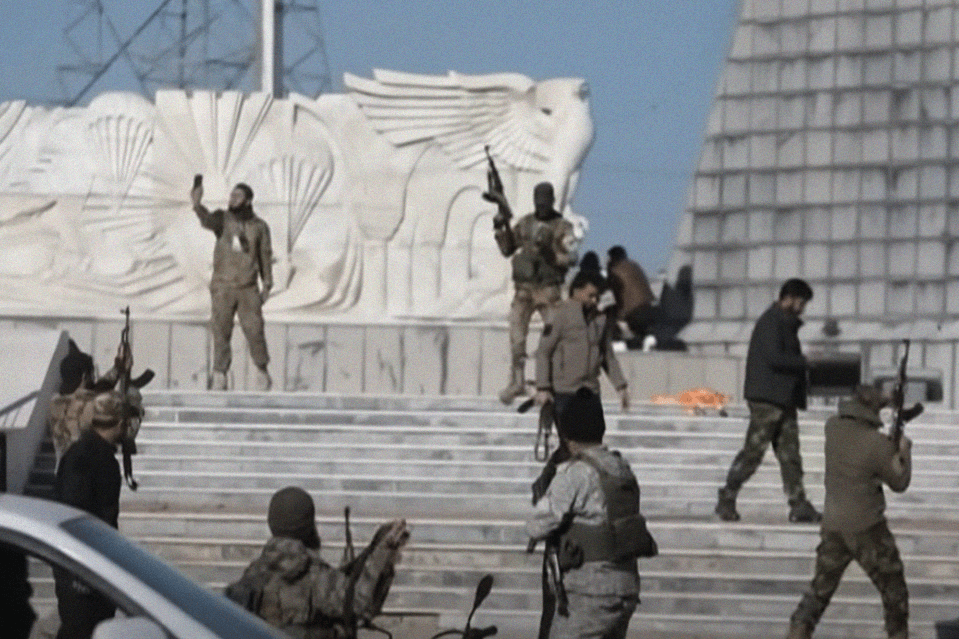
As Sir Keir waits for the signal from the White House as to whether or not he is allowed to end the proscription of HTS, we have witnessed the sickening spectacle of the British establishment trying to market HTS to the public back at home.
The capitalist press has wasted not a minute in its ground campaign to control any blowback from the public. Yesterday’s ‘moderate’ rebels have become today’s ‘diversity-friendly’ jihadists. Abu Mohammad al-Jolani has gone from being a terrorist with a sizable bounty on his head to being a ‘blazer-wearing revolutionary’!
David Lammy has even offered a £50 million package of ‘aid’ as a gesture of good will.
A fog of collective amnesia seems to have set in as to the real legacy of jihadism in a civil war that destroyed Syria. Now ISIS seems a distant memory, the very same terrorists are being spun as ‘reformers’ fighting a just cause.
In this frenzy of propaganda, there is a notable absence of the role Britain has played in creating the poisonous soil from which Islamic fundamentalism sprouts.
Whether it be the power vacuums created by the invasions of Iraq or Afghanistan; or the bombings of Libya in conjunction with the Islamist insurgency against Gaddafi; to now marketing HTS as Syria’s great ‘reformers’: the short-sightedness and cynicism of the British ruling class knows no bounds.
As is always the case, those shouting loudest about their humanitarian credentials, and their deep concern for ‘democracy’, are the ones who continue to destroy and devastate the poor and oppressed masses of the Middle East.
After creating a wasteland, these ladies and gentlemen call it ‘peace’.

